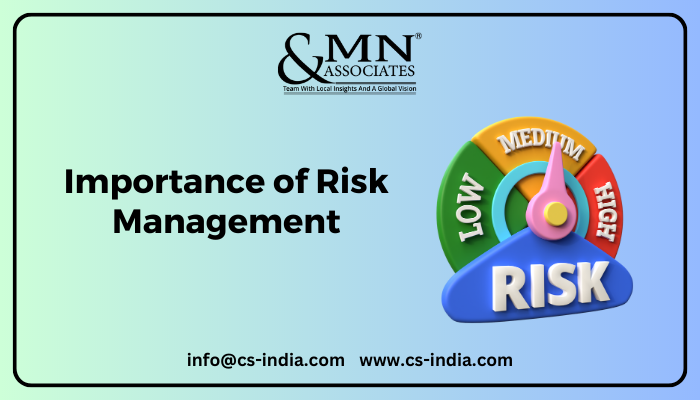Unlocking the Actual Importance of Risk Management for Continuous Growth
Unlocking the Actual Importance of Risk Management for Continuous Growth
Blog Article
The Critical Relevance of Risk Management in Getting Organizational Goals
This is where Risk Management steps in, supplying an organized approach to identifying, evaluating, and mitigating possible barricades to proceed. As we explore the crucial duty of Risk Management in attaining business objectives, one can not aid but question: how does this equate into real-world success?
Recognizing the Principle of Risk Management in Company

The Indispensable Duty of Risk Management in Strategic Preparation
Integrating Risk Management right into strategic planning functions as a secure for companies, anchoring their lasting plans with a strong foundation of preparedness and durability. It operates as the company's radar, identifying prospective hazards and susceptabilities that can interrupt the course in the direction of achieving their mentioned goals. Risk Management offers a framework for anticipating unpredictabilities and designing suitable feedbacks, making certain the company's survival and success also in the face of difficulty. By incorporating Risk Management into critical preparation, companies can transform these uncertainties right into possibilities for development and technology. This tactical interweaving of Risk Management cultivates flexibility, making organizations much more robust and enabling them to browse the ever-changing service landscape confidently. Subsequently, Risk Management ends up being an important device in critical preparation, crucial in safeguarding sustainable success.

Strategies for Identifying, Assessing, and Prioritizing Dangers
The process starts with Risk recognition, utilizing tools such as SWOT evaluation, which assists in determining prospective threats and possibilities. Next off, Risk analysis is carried out to establish the potential effect and possibility of each Risk. Risks are focused on Bonuses based on their potential influence and probability, permitting companies to focus their resources on high-priority dangers.
Safeguarding Business Workflow Through Reliable Risk Management
In the service landscape fraught with unpredictabilities, efficient Risk Management plays an essential function in protecting business procedures. By recognizing and analyzing potential hazards, Risk Management allows companies to establish robust contingency plans. Organizations need to spend in detailed Risk Management check it out methods to secure their procedures.

Transforming Prospective Dangers to Opportunities: The Power of Risk Management
A positive technique to risk Management entails recognizing, examining, and focusing on threats to devise techniques that transform them into prospective benefits. Thus, by leveraging the power of Risk Management, organizations can not only safeguard their procedures but also spur growth and attain their objectives in an unforeseeable service atmosphere.
Case Researches: Success Stories of Risk Management Driving Business Objectives
Successful implementation of Risk Management strategies has actually produced outstanding outcomes in different companies, underscoring the values of this approach. International business like Microsoft and Google, for instance, have actually leveraged Risk Management to reduce threats and exploit opportunities, driving their organization goals ahead. These examples illustrate exactly how effective Risk Management can not just guide organizations clear of potential challenges however additionally guide them in the direction of their calculated goals.
Conclusion
In verdict, Risk Management is fundamentally critical in find accomplishing business objectives. It offers a methodical strategy to recognizing, analyzing, and dealing with possible hazards and chances. Even more than simply mitigating threats, it additionally cultivates innovation, resilience, and sustainable development. By integrating Risk Management into tactical planning, organizations can better navigate uncertainties, secure operations, and capitalise on chances, therefore aligning with long-term objectives.
At its core, Risk Management is the procedure of determining, evaluating, and resolving potential risks that could adversely influence a company's purposes or procedures. Next off, Risk analysis is carried out to determine the prospective influence and possibility of each Risk. Dangers are focused on based on their possible effect and likelihood, enabling companies to focus their sources on critical threats. By identifying and analyzing possible hazards, Risk Management enables companies to establish robust backup strategies. An aggressive strategy to take the chance of Management involves identifying, analyzing, and prioritizing risks to devise methods that transform them right into possible benefits.
Report this page